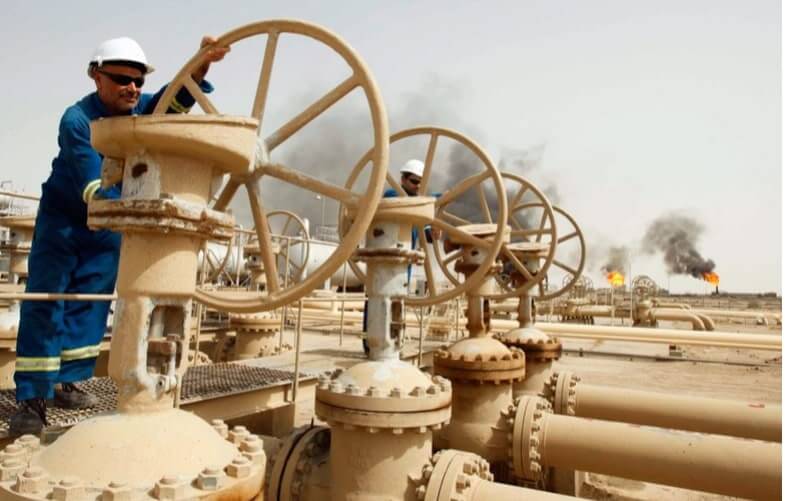Can Iraq help resolve oil supply problems and stabilize the market?

May 22, 2022
Iraq is one of the world’s most oil-dependent countries. Oil income has accounted for more than 99% of exports, 85% of the government’s budget, and 42% of GDP over the last decade. The country’s overwhelming reliance on oil exposes it to macroeconomic volatility, while budget constraints limit fiscal headroom and any countercyclical policy options.
With Russian oil flowing east, the West is exploring all options for increasing oil supplies. Iraq may be able to play a significant role in this regard. “While many members of the OPEC+ group are failing to meet their allowed output quotas, one country that has been able to do so is Iraq,” shipbroker Gibson noted in its latest weekly report.
In April, the country produced 4.43 million barrels per day (BPD), up 282 kbd from March and up 6.8% MoM. While this was only 16 kbd more than Iraq’s quota, it indicates that OPEC’s second-largest producer is continuing to increase output. The OPEC+ accord allows the country to expand output to 4.5 million BPD starting in June, and it has intentions to dramatically enhance exports in the coming years.
Demand for Iraqi crude is also moving, with European refiners increasingly considering Basrah Medium and Basrah Heavy as alternatives to Urals, and India (Iraq’s top customer) becoming one of Russia’s largest importers in the last 2.5 months.
If heavy grades from Iran and Venezuela are permitted back on the market this year, Iraqi exports could move much more. “IEA data shows Iraqi production has been steadily climbing since July 2021, as OPEC+ decided to undo previous output cuts across the organization,” Gibson writes. Because of the Covid-19 limits, the total crude output is still 2% below January 2020 levels.
This increased output could indicate that Iraq’s oil industry is well-positioned to benefit from improved oil demand prospects. The Iraqi oil ministry also announced intentions to increase overall crude production to 6 million barrels per day by the end of 2027, which would need an additional 1.57 million barrels per day increase from April 2022 levels.
Given that the deadline is around 6 years away, an annual increase of 314 kbd would be required until 2027, which is the current output trend. The increasing investment would not necessarily make this an unrealistic goal, but it remains optimistic considering some of its OPEC rivals’ problems to expand production.
Some western businesses have left Iraq in recent years due to worries about the country’s investment environment, highlighting some of the obstacles to increasing upstream investment in Iraq’s mature oilfields. “Another major element is Iraq’s export infrastructure,” the shipbroker continued. “The crucial Basrah Oil Terminal has been underperforming in terms of export capacity.”
With the addition of 250 kbd, the total operational capacity has increased to 3.5 million BPD. It will be critical to improve the export capacity of Southern Iraq’s deep-water ports in order to accommodate future growth in production and exports, which would necessitate more investment.

Another alternative is to increase capacity along the Northern Kirkuk-Ceyhan pipeline so that crude can be transported to the Mediterranean. Current political tensions with Iraqi Kurdistan, however, make this improbable. Iraqi exports to China are likely to be hampered in the medium term as Covid limitations continue to affect Chinese crude demand, while the displaced Urals grow more appealing to Chinese refiners.
As the new Karbala refinery comes online and gradually raises intake up to 140 kbd to fulfill expanding domestic product demand and power generation needs, some of the additional crude may remain in Iraq. Meanwhile, another factor to ponder is whether Indian refiners’ huge purchases of Urals will have a significant impact on their demand for Iraqi grades.
However, this would leave more Iraqi barrels for refiners who avoid the Urals. While this demonstrates that there are still doubts about how much global oil flows will be altered as a result of the invasion of Ukraine, it also demonstrates how critical it is for traditional Urals consumers to find alternate supply sources.
While the Iraqi data suggest a favorable production forecast, it will still need to secure the national stability required to make its objectives a reality, and it is prudent to proceed with caution,” Gibson added.
Click here to join our Telegram chanel
You will get information, news, and support related to Merchant Navy.
